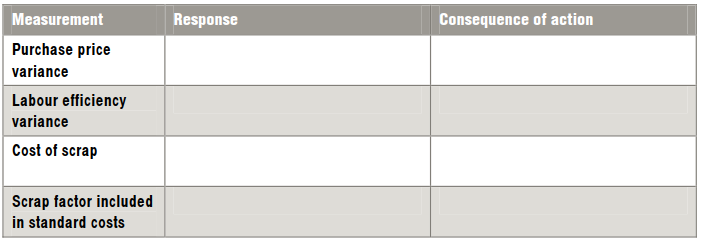快速查题-ACCA英国注册会计师试题
- 不限题型
- 不定项选择题
- 单选题
- 填空题
- 材料题
- 简答题
- 论述题
Provide five reasons why poor attitudes could arise when a budget is implemented.
What three factors are said to determine the effectiveness of participation in target setting?
A budget for motivational purposes, with fairly difficult targets of performance, is an aspirations budget.
In which of the following circumstances are participative budgets likely to be effective?
(1) In very large organisations
(2) During periods of economic affluence
(3) When an organisation's different units act autonomously
(4) In newly-formed organisations
Participation by staff in the budgeting process is often seen as an aid to the creation of a realistic budget and to the motivation of staff. There are, however, limitations to the effectiveness of such participation.
Which of the following illustrates one of these limitations?
Which of the following statements about budgeting and motivation are true?
(1) A target is more motivating than no target at all
(2) The problem with a target is setting an appropriate degree of difficulty
(3) Employees who are challenged tend to withdraw their commitment
Which of the following best describes a top-down budget?
In which of the following circumstances are participative budgets effective?
(1) In decentralised organisations
(2) During periods of economic affluence
(3) When an organisation's different units act autonomously
One of the basic tenets of total quality management is 'get it right first time'. Is variance reporting a help or a hindrance in this respect?
Complete the table below to show a possible response to each of the traditional performance measures and a consequence of that response.



